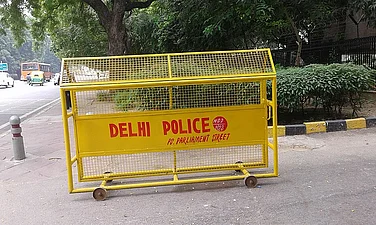As a brief entry in an encyclopaedia describes it, Fraternity is 'the philosophically neglected third child of the French Revolution', the other--more illustrious--children being liberty and equality. This trinity, alongside dignity and justice, are the preambular aspirations of the Indian Constitution. In line with fraternity's historical neglect elsewhere, most invocations of constitutional values in our legal and political spaces have failed to even enumerate it. That was, until March this year, when the People's Union of Civil Liberties (PUCL)–Karnataka published its Report titled ‘Cultural Policing in Dakshina Kannada: Vigilante Attacks on Women and Minorities 2008-9'. The Report painstakingly documents the events that led up to the attacks on women in a pub in Mangalore in January 2009 by Ram Sene activists, and their aftermath. Locating them in a socio-cultural context, it explains that cultural policing particularly targeted women and young people, telling them what clothes they may wear, what places they may occupy and what sorts of relationships they may form. By refusing to adopt the usual characterization--‘moral' policing--the Report suggests that the acts of cultural policing are the ones that are in fact immoral because they violate moral principles like fraternity, and not their targets.
However, it is its reliance on fraternity--rather than liberty or secularism--in criticising cultural policing that makes one sit up and take notice. Invoking Dr. Ambedkar, the Report explains:
'The promise of fraternity held out in the Preamble is what is contested at its very roots by cultural policing. What cultural policing wants to produce are monolithic self-enclosed communities with no form of social interaction between them. It is antithetical to the idea of ‘We, the people of India' and insists that India is no more one nation, but rather a conglomeration of separate peoples.'
The idea becomes clearer if we consider the obligations most of us (rightly) think we owe to our parents, siblings, partners and friends: we have a sincere concern for their well-being for their own sake, and not because they are of some instrumental value to us. The constitutional ideal of fraternity makes similar claims of us, albeit to a lesser degree. It suggests that we ought to have a sincere concern for the well-being of all Indians.
Recent years have violated the ideal of fraternity in a variety of ways. Examples include gated residential communities which exclude people on the basis of their caste, religion and food preference; and lovers who are prevented from entering into relationships because they belong to different religions/castes or the same sex. When entire communities are ghettoized to create apartheid-like city spaces, fraternity is all but dead. On the other hand, fraternity has hope so long as Oskar Schindlers and Mrs Iyers of the world continue to hide their vulnerable neighbours from murderous mobs.
The ideal of fraternity imposes specific duties on the state in order to promote social cohesion and solidarity. In particular, it requires the state to ensure a certain minimum degree of well-being for ‘socially excluded people'. Professor Hugh Collins from the London School of Economics describes socially excluded people as those ‘who are effectively prevented from participating in the benefits of citizenship or membership of society owing to a combination of barriers, of which poverty is merely one.' For Collins, ensuring a minimum degree of autonomy or capability for the socially excluded constitutes a political middle-path which avoids the excesses of the Left as well as the Right. The Equal Opportunity Commission Bill and the Diversity Bill drafted by government committees last year to follow-up on the Sachar Committee's findings exemplify this kind of politics. Parliament's failure to enact them suggests that this political centre-ground remains elusive.
The PUCL, as a non-identity-based progressive political space, is perhaps the most apt voice to begin these conversations on fraternity. This enrichment of our lexicon must be welcomed. But we must remember the lessons learnt from decades of over-burdening ideals like ‘secularism' and ‘social-justice'. No single ideal should be made to shoulder all demands of progressive politics. Rhetorical overuse reduces them to platitudes. Fraternity is only one, among several, ideals, and like each of them it has limitations. It may not, for example, help us to think fruitfully about our obligations to the environment or to future generations.
Like secularism, we may (legitimately) debate the content of fraternity. One may ask if fraternity should include all humans rather than only Indians. Only those conceptions that are compatible with other cherished ideals--liberty, equality and secularism--will be constitutionally acceptable. At least within the constitutional framework, our conception of fraternity cannot be tyrannical--it cannot, for example, insist upon the erasure of our multiple identities; neither can it deny us the ability to transcend them if we want to.
With these caveats in mind, we should compliment the PUCL for rediscovering this forgotten ideal.
Tarunabh Khaitan teaches law at St Hilda's College, Oxford. He may be contacted at tarunabh [at] gmail [dot] com





















